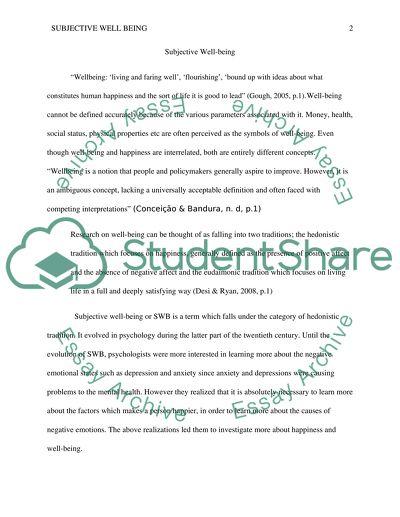Cite this document
(“Subjective well-being Essay Example | Topics and Well Written Essays - 2000 words”, n.d.)
Retrieved from https://studentshare.org/psychology/1429603-choose-one-of-the-two-types-of-well-being-and
Retrieved from https://studentshare.org/psychology/1429603-choose-one-of-the-two-types-of-well-being-and
(Subjective Well-Being Essay Example | Topics and Well Written Essays - 2000 Words)
https://studentshare.org/psychology/1429603-choose-one-of-the-two-types-of-well-being-and.
https://studentshare.org/psychology/1429603-choose-one-of-the-two-types-of-well-being-and.
“Subjective Well-Being Essay Example | Topics and Well Written Essays - 2000 Words”, n.d. https://studentshare.org/psychology/1429603-choose-one-of-the-two-types-of-well-being-and.


